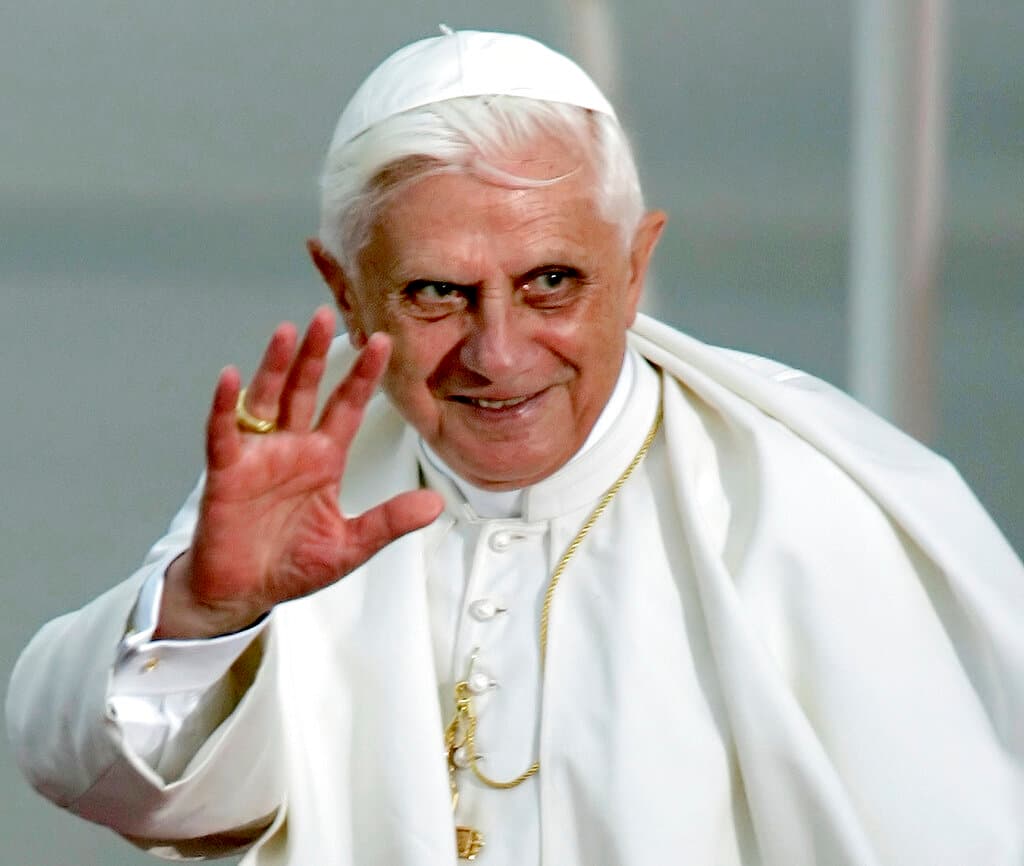Benedict, We Hardly Knew You
The essential disappointment of his papacy — for himself, and the West — was that once he found himself at the head of the church, his aspirations ran up against institutional failures within.

The death of Benedict XVI is a moment that will be marked with sadness by many millions more than the world’s 1.3 billion Roman Catholics. The sadness is certainly shared here at The New York Sun, where Benedict was admired and appreciated for his towering intellect, his reluctance to bow to the ideological fads of the day, for his willingness to face down extremist elements in Islam, and for his friendliness to Jews and Judaism.
There is no doubt that Benedict will be remembered for his decision to step down as the leader of the church, the first pope to do so in 600 years. Yet there are other, and arguably much greater, historical points to mark. Benedict was a deserter of the Hitler youth, a fact that might have prefigured his friendliness to the Jews and in a non-supersessionist way. Benedict XVI was also the last of the cardinals of Paul VI.
Benedict, too, was the last prominent peritus, or consulting expert, at the Second Vatican Council, which John XXIII had convened. It led to liberalizations, among them relieving Jews of allegations of guilt in respect of Christ. Benedict acceded to the throne of Saint Peter during an era that had seen how great a role popes can play in modern affairs. We think in particular of John Paul II’s heroism in facing down the Soviet Union.
In 1968 the future Pope Benedict compared the challenge of promoting the faith in a secular age to Kierkegaard’s tale of a clown who ran to warn a nearby village that his traveling circus had caught fire. The villagers think the clown’s warnings are a joke, and “his supplications only increased the laughter,” Benedict wrote, “until finally the fire did engulf the village; it was too late for help, and both the circus and the village were burned to the ground.”
In the same way, Benedict observed, a theologian today “is simply not taken seriously.” In 2000 he lamented the failure, after the collapse of the Soviet bloc in 1989, of Christianity to rise to the occasion, “to make itself heard as an epoch-making alternative.” He called for Christianity to “try very seriously to rediscover its voice, so as to ‘introduce’ the new millennium to its message and to make it comprehensible as a general guide for the future.”
The choice of the name Benedict suggested his high hopes for his papacy. Benedict XV was known for settling feuds between modernists and traditionalists in the church. It also paid homage to Europe’s patron saint, Benedict, whose work developing the monastery system helped to salvage Western culture out of the Dark Ages following the fall of Rome. Benedict XVI likewise envisioned a revival of the church in an age when faith itself is besieged.
The essential disappointment of Benedict’s papacy — for himself, and Western culture more broadly — was, then, that once he found himself at the head of the church, his aspirations ran up against institutional failures within the church itself. These included financial scandals as well as the larger crisis of sexual abuse in the clergy. He came, as the Washington Post puts it, to “see his tenure as pope undone in large part by a rot within.”
There will be a temptation in the press to set down Benedict’s papacy as a failure, marked by his resignation. The Sun is not a theologian, just a newspaper. Our sense of Benedict, though, is that in his vast scholarship and historiography he was a towering figure even among other popes and that his conservatism will come to be seen as even more important a summons in the generations ahead than it was in his own time.

